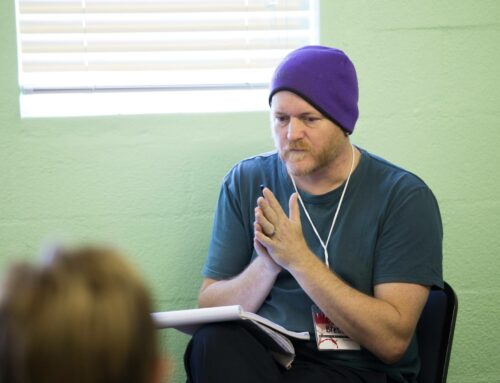One of the areas of racist behaviour that grates me the most is when a white person refers to the person working in their garden or looking after the upkeep of their house or perhaps watching their children as ‘boy’ or ‘girl’.
Especially when the person they are referring to is often older then them, but i think it should be a standard rule that once someone hits what 20? 18? they are no longer young enough to be referred to as ‘boy’ or ‘girl’..
If you are someone who does that, you should STOPPIT, because it is RACIST!
Perhaps the easiest way to tell is if the races were reversed and you heard a 35 year old black person calling a 50 year old white person ‘boy’ – how does that sound to your ears?
Just stoppit. It’s racist. It feels like the smallest thing and yet it is also the biggest thing. It is rude and demeaning and condescending and just pretty rubbish. So quit. And more importantly, if you hear someone else do this, say something.
i think that one of the biggest ways we will start to move forwards well in this country is when people start refusing to let racism happen around them. A person who calls someone else ‘boy’ or ‘girl’ is not likely to just suddenly stop doing it. But if you call them on it they will. And it is likely going to be a friend or close family member. So you have the relationship capital. Risk the embarrassment and call them on it.
This is not good enough. And when we stop doing it and stop allowing other people around us to do it, then we will all be one bit less racist.
When was the last time you heard someone refer to someone of a different race as a ‘boy’ or ‘girl’ when clearly their age dictates that they are not? Did you say anything?
[For a quick pause on the series and a reframing of the bigger questions, click here]







[…] Calling someone ‘boy’ or ‘girl’ when they clearly aren’t […]
[…] [For the next post looking at calling someone ‘boy’ or ‘girl’ click here] […]
I totally hear what you are saying and totally agree that people should respect each other and use respectful terms to do so. But I think that you must also acknowledge that in this particular blog because you used specific terms you are speaking from an ethnocentric perspective and so what you say is culturally constrained and not a universal truth. So for example I live in Ireland and many women of all ages refer to each other as ‘girls’. I’m in my 50s and call myself a girl and refer to my friends as the girls. In fact I smart a little if someone refers to me as that ‘woman’ over there. For most women in our culture the term ‘girl’ would be considered endearing rather than insulting. For males in Ireland the word ‘boy’ would really only be used for prepubescent boys, then they become teenagers, young men or men but just like women use the word ‘girl’ men would tend to use words like ‘guys’ or ‘lads’. So my point is what is insulting in one country or culture might not be insulting in another country or culture. So I totally agree with your point that people should address each other respectfully in a way that is acceptable within that particular society. However to dictate particular words makes it only applicable to the the example society that you discuss here rather than universal to all societies. It is a little difficult to explain so I hope that you ‘get’ what I mean.
Thanks. Great point. My post was definitely focused on white people in South Africa and that should have been made more clear. Totally didn’t realise that it was different somewhere else so thank you…
you know its funny I read your post as if written from the USA, really interesting getting insights from all over the world – I think that it would be great if anthropology were thought in schools it really would make people more open minded and aware
My difficulty with this series Brett is that I feel it is more based on individual experience which I always try to avoid. Individual experience leads to reactionary actions which are limited actions. The fact that in this status in particular we are talking about “boy nd a girl” nd we already know they are blk shows the biggest problem of racism. The fact that a domestic worker is black and “must not be refered to be a boy or a girl” shows a problem. Why does the domestic worker have to be black? Now for me the solution to racism will come from asnwering that simple question! Racism won’t end as long as blacks are still the definition of a domestic workers in houses of white people, they are petrol attendants in cars of white people, they are tellers in shopping malls of white people etc. So I am just going to read other peoples responses on this!
Just a further input on this issue, in my culture it is boys who wakes up to clean up after dogs mess nd the irony of it all is that the boys are normally wakened up by their fathers but the same fathers wakes up to clean the dogs mess of white people. The dignity of the white peoples gardner’s is what matters for me!
In our culture shacks were created for pigs but it is our fathers who find themselves in shacks (Dignity again).
So basically for me racism is the power that puts white people as a group on top (to be the domestic helped) and black people as a group at the bottom (to be the domestic helper)!
Hm, Mr Gola, you make some great points – good thing i am in-betweening these racism posts with some Steve Biko hey? i totally hear you and must definitely give this some more thought to make sure this series is not just another form of race issue so maybe we should chat… i definitely hear you on the bigger issues and agree, but is there perhaps a way to see that it is Both/And instead of Either/Or… so while you are absolutely right on the big issues, given that those are the case at the moment [and need to be addressed], within that context it is still a good start for the white adults to stop referring to the black workers as ‘boy’ and ‘girl’ while realising something needs to be done about the fact that it is the black adults that are doing those jobs for the white adults still?
[…] but definitely doesn’t carry the strength it does in the USA. So Sabrina reminded me that the ‘girl’/’boy’ post was referring specifically to the South African […]